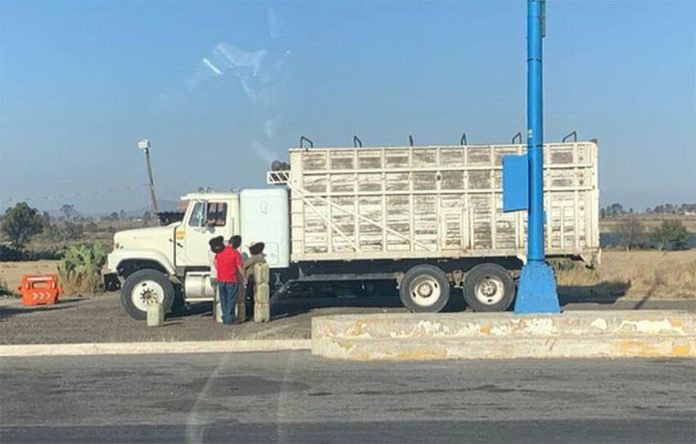There are 64 points at which stolen fuel can be bought on the Mexico City-Querétaro highway compared to just 15 gas stations, according to a count by the newspaper Reforma.
Vendors of stolen fuel set up makeshift distribution points on the side of the highway where they sell 25 liters of gasoline for 13 pesos (US $0.66) a liter, a discount of over 40% compared to gas station prices. They also sell 25-liter containers of diesel at similar discounts.
Purchases of smaller quantities of fuel are not possible, Reforma said. Most of the illegal vendors – fuel thieves themselves or supplied by thieves – are located between Jilotepec, México state, and the Palmillas toll plaza in San Juan del Río, Querétaro.
They cover their supplies with black tarps, Reforma reported, but otherwise operate in full view of passing motorists. Nevertheless, the illicit vendors operate with impunity, the newspaper said.
Reforma also reported that stolen fuel is being sold on the Mexico City-Puebla highway. It counted six illegal distribution points in one four-kilometer stretch of highway between Río Frío, México state, and San Martín Texmelucan, Puebla.
San Martín, which has been described as Mexico’s capital huachicolera, or fuel-theft capital, is part of the so-called Red Triangle, a region of Puebla that is notorious for the tapping of state-owned petroleum pipelines.
The sale of stolen fuel is not limited to illicit distribution points. Some gas stations also sell stolen fuel, and some have been shut down for doing so.
President López Obrador acknowledged last week that stolen fuel is still being sold on the nation’s highways despite the government’s crackdown on fuel theft. He called on citizens to “not support these illegal activities that are also very risky.”
Explosions on pipelines that have been tapped by fuel thieves are relatively common in Mexico, with one in Hidalgo in 2019 killing almost 140 people.
The federal government has drastically reduced fuel theft since it took office in late 2018, but data shows that pipeline taps increased 14.6% in the first quarter of 2022 compared to the same period last year.
With reports from Reforma
